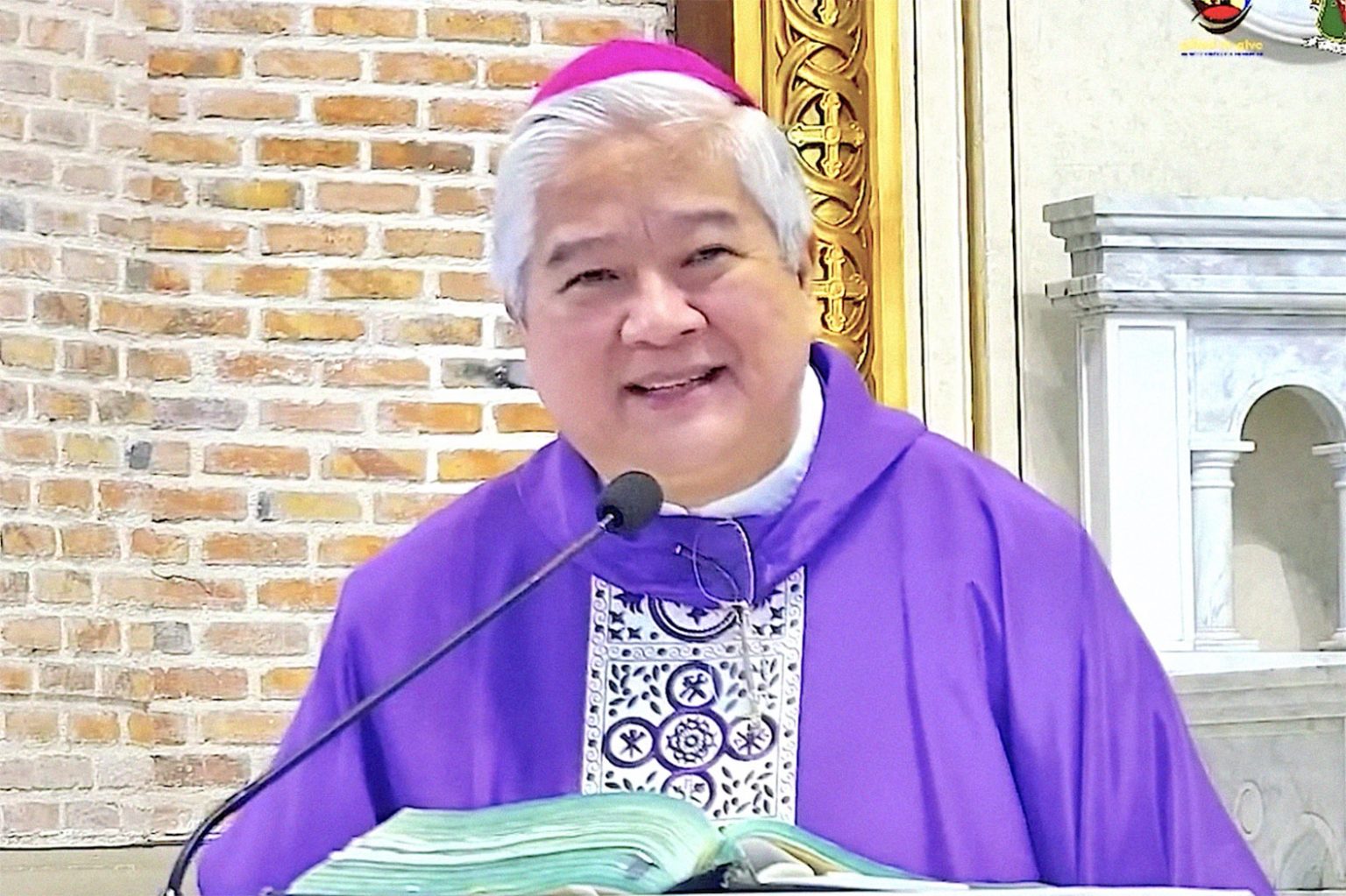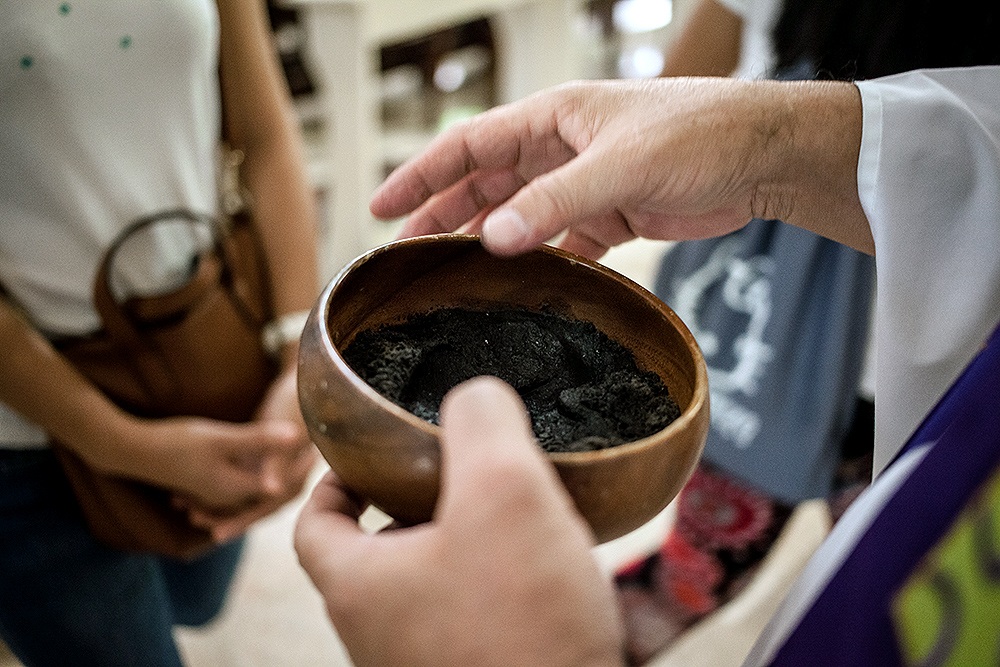by Abraham M. Dela Torre
ONE OF MY favorite guest priests, Fr. Cornelius Murmu, had for his homily last 6th Sunday in ordinary time, the leper who came to Jesus and begged Him to cure him. He did not do it in a mendicant manner, but with a confident demeanor which declared, “If You will, You can make me clean.” Such was the leper’s faith that he merely mouthed off his certitude that his cure lies in Jesus.
Modern medicine and technology have combined to eradicate leprosy. But during those times, a leprous person was not counted among the living. More than the pain of the illness, the leper had to contend with being an outcast, ostracized by society, almost deemed dead, expelled from the rest of humanity. Yet Jesus, beseeched only once, gave the man not only heed but did him honor more eloquent than love – He touched him.
Would that we were kinder to our brothers, the poor and marginalized, the sick, the disabled, the elderly, the widows and children. And other brethren.
Fr. Cornelius is from Bangladesh. I have been to Dhaka as a member of an ILO training contingent. There is poverty there, more felt and stark than ours. Which was why we were sent there to introduce a productivity improvement seminar, aptly dubbed WISE (Work Improvement in Small Enterprises). The participants of the training program were mostly from the government sector, middle-income workers trying to help their country move forward. They were simple, sincere and well-meaning. Not all of them spoke good English so we had to paraphrase our medium of communication or employ an interpreter to get our message across. They also ate average fare and always had an extra, ubiquitous bowl for the bones of fish and meat that would otherwise mess the table up, a perceived modicum of table manners. Most ate with their hands so we tried hard to use our cutlery as little or as less obvious as possible.
I like Fr. Cornelius’ homilies because he uses simple words to be generally understood, not that he could level up his speech. It is evident that his simplicity emanates from the open admission that his English is not to the manner born. Wherever he learned he language, he learned sufficiently to express himself in earnest. His homilies always hit me home because of their basic purpose to share God’s goodness. He never indulges in personal claims of great deeds or lofty merits, only in the innate meat of the Eucharist, that God’s love is to be shared and spread.
Some parishioners complain they do not understand him. Which perplexes the bejesus out of me. And make me think that if they cannot comprehend his basic speech, maybe they are only hearing what I’m listening to. And not trying beyond hearing.
It’s the same gripe they give to another cleric, Fr. Robert Victor Raj, an Indian national. Fr. Robert also uses modest words and even oversimplifies, a clear effort to really connect to the churchgoers. I look forward to his gospel interpretations. And I listen with an ear in-between its first letter “h” and last “t.” So that what I hear is a heart full of earth, a congruence of God and man denominated by love. And I’d be darned if I knew where all the confounded criticisms are coming from. So I let the dismay die a charitable death.
Although, in my heart of hearts, I ask God what could really be the matter with those who, because of what is probably a misconstrued perception of the priest, prefer to hear Mass anyway but inevitably confirm that he cannot be understood. As opposed to those who share my liking for the homilies of these two foreign men of the cloth.
Compared to those who call to ask who will preside at Mass (implicit in their choosiness), the vocal groaners have the suggestion box as an alternative choice, a confidential channel devised by the Parish Pastoral Council (PPC) to address complaints and comments to improve the church and her services, which is a decent vessel because, unlike common chit-chat, not laced with malice or spite.
Just this Ash Wednesday, Fr. Cornelius ushered Lent in a most stirring rendering of the gospel. He said that Lent starts from the head and ends on the feet. The ash is imposed on the forehead of the faithful to purify them of their sins. Lent ends on Maundy Thursday with Jesus washing the feet of His apostles, God’s utter humility manifested in not only being a man like his disciples, but also less so, a servant ridding humanity’s worldly tired feet of dirt, dust and dregs. A completion of the head-to-feet cleansing feat.
He went on to say that Ash Wednesday reminds us of two things: to pray and fast while giving ourselves to our brothers who have meager resources. The prayer is not like the usual words that come out of our mouth by rote but one that beseeches not for the self but for the others. It is a prayer that does not want but fasts so that whatever we have in excess we may share with those have less. Like Jesus allowed everything to be taken away from Him, from Gethsemane to Calvary, with no accounting for their toll on His life. Praying, He included all – friends, foes, betrayers, traitors, even those who disowned Him and sold Him for silver coins. He did not care, He prayed for all, especially the sinners. He asked His Father if He could take the cup away from Him but submitted to the Father’s will if it meant His end. So, too, should we be mindful of how we fast. Is it for our regimen (diet) to strip us of unwanted fat? Or with concern to give the excess food to those who have more need of them. Do we do it like the hypocrites of old with a glum face, or simply and silently, like Mary’s countenance from Christ’s conception to His crucifixion?
Only through selfless sacrifice can we be truly connected to Christ’s generous stripping of His Godship to equip the less fortunate among us with provisions, prayer in their abject poverty and placating of their dire circumstances.
Only then can we be really ready to take the road to redemption.












